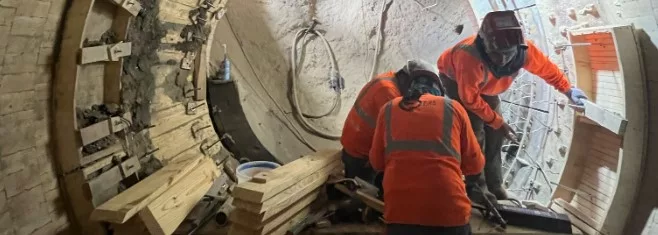The Role of Refractories in Modern Industry
Refractories are an essential component in several industries. They are a critical component in high temperature processes, helping to withstand the intense heat, corrosive environments, and mechanical stress that are common in many industrial and manufacturing processes. The durability of refractories helps ensure process efficiency and prevents costly downtime.
In this article, we’ll take a look at a few industries that require refractories, the types of facilities that have them, and the importance of regular maintenance and improvement services for refractory systems.
Steelmaking Industry
The steelmaking industry is one of the largest users of refractories. Steel production requires high temperatures to melt the raw materials and form the final product. Refractories are used in the linings of blast furnaces, ladles, tundishes, and other vessels that come into contact with molten steel. The linings help to maintain process efficiency, prevent contamination, and reduce downtime due to maintenance or equipment failures.
Non-Ferrous Metals Industry
The non-ferrous metals industry also requires refractories. Aluminium, copper, zinc, and other non-ferrous metals are produced using high temperature processes similar to steelmaking. Refractories are used to line the furnaces, melt shops, and other vessels used in these processes. The refractories help to maintain process efficiency and prevent contamination of the molten metals.
Cement & Lime Industry
The cement and lime industry uses refractories in the production of cement clinker. Cement kilns are lined with refractory materials to withstand the high temperatures required for the production of cement clinker. The refractories help to improve process efficiency, reduce energy consumption, and prevent contamination of the final product.
Glass Industry
The glass industry also requires refractories. Glass furnaces are lined with refractories to withstand the high temperatures required for the production of glass. The refractories help to improve process efficiency, reduce energy consumption, and prevent contamination of the final product.
Petrochemical Industry
The petrochemical industry requires refractories for several processes, including the production of chemicals, plastics, and synthetic materials. Refractories are used in furnaces, reactors, and other vessels used in these processes. The refractories help to maintain process efficiency, prevent contamination of the final product, and reduce downtime due to maintenance or equipment failures.
In conclusion, refractories are an essential component in several industries, helping to withstand the intense heat, corrosive environments, and mechanical stress in high temperature processes. Regular maintenance and improvement services are crucial to ensure the continued efficiency and effectiveness of refractory systems.
By working with experienced refractory contractors, facility operators can improve the performance of their refractory systems, reducing downtime and increasing process efficiency. If you’re the operator of a facility in any of the industries mentioned above, it’s important to consider regular maintenance and improvement services for your refractory systems.

